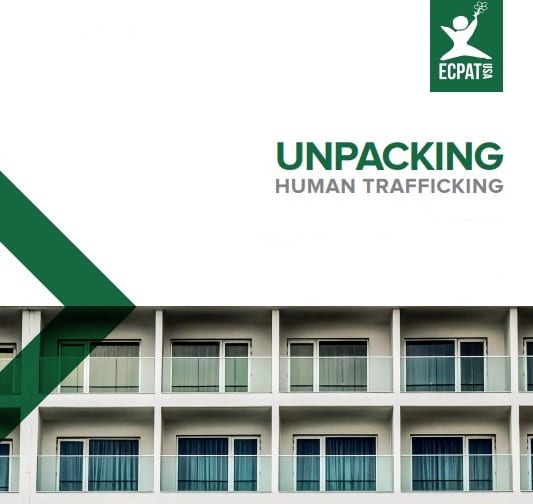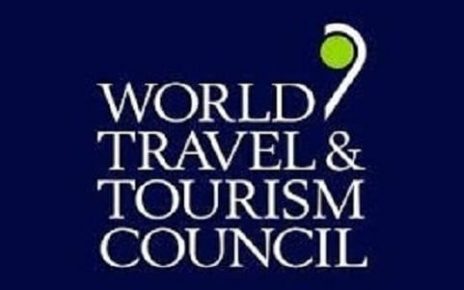An updated ECPAT-USA report details laws in all 50 states and 23 US territories, counties, and cities for the lodging industry.
ECPAT-USA, in partnership with the American Hotel and Lodging Foundation (AHLA Foundation), released today the latest update in a series of reports that detail anti-trafficking training and signage laws, as well as potential civil and criminal liability, in each state.
The report, Unpacking Human Trafficking Vol. 3, is an update and expansion of Volumes 1 and 2, released in May 2019 and January 2020, respectively. The original report and the updates were made possible with the financial support of the AHLA Foundation.
This newest report is even more detailed, including an expanded list of other US jurisdictions that have adopted ordinances related to these concerns: Guam; Albert Lea, Minnesota; Baltimore, Maryland; Chicago, Illinois; Fulton County, Georgia; Hapeville, Georgia; Houston, Texas; Jacksonville, Florida; Long Beach, California; Los Angeles, California; Miami Beach, Florida; Miami Lakes, Florida; Minneapolis, Minnesota; New Orleans, Louisiana; Phoenix, Arizona; Prince George’s County, Maryland; Pueblo of Laguna, New Mexico; and Tucson, Arizona.
“For over a decade, ECPAT-USA has been working with hotel and lodging companies to raise awareness of how businesses can help prevent traffickers from using the industry for their own corrupt practices,” said Yvonne Chen, Director of Private Sector Engagement at ECPAT-USA. “These resources will not only help hotels remain compliant with their local anti-trafficking laws but will also help staff and associates better understand the signs that a child might be at risk. We thank the AHLA Foundation for their continued partnership on this crucial information.”
“Through innovative techniques and employee training, the hotel industry has been recognized for the critical role it plays in ending the scourge of human trafficking,” said Rosanna Maietta, President and CEO of the AHLA Foundation. “The Foundation is committed to building on these current efforts to ensure all employees are trained in identifying, reporting, and stopping instances of human trafficking.”
This survey of all the applicable state laws currently in effect will continue to be updated in a fourth edition. Posters that comply with the various signage laws and free anti-trafficking training for hotels, as well as additional resources for hospitality brands, management companies, and properties are available on ECPAT-USA’s website at www.ecpatusa.org/hotel . To access the full report, visit www.ecpatusa.org/unpackinghumantrafficking .




